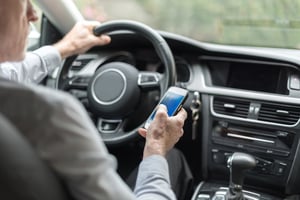
This iPhone Tip Could Save Your Life
Every day, at least nine Americans die and 100 are injured in distracted driving crashes. [1]
April kicks off Distracted Driving Awareness Month, a campaign dedicated to raising awareness and reducing crashes caused by those who are simply not paying attention.
PARTNER SPOTLIGHT
Dealer Management System, Computer Technology, Media/Advertising, Automotive Auction, F & I/Aftermarket Products, Automotive Technology Training & Compliance
 A NHADA Gold PARTNER
A NHADA Gold PARTNERComputer Technology, Automotive Shop Equipment, Environmental Services
 A NHADA Platinum PARTNER
A NHADA Platinum PARTNERF & I/Aftermarket Products, Automotive Technology Training & Compliance, Environmental Services
.png?width=150&name=corp_logo_horz_on_light_with_trademark_symbol_1200w%20(002).png) A NHADA Diamond PARTNER
A NHADA Diamond PARTNERF & I/Aftermarket Products, Financial Services, Automotive Technology Training & Compliance
 A NHADA Diamond PARTNER
A NHADA Diamond PARTNERDriving—it’s something so many of us take for granted. It gives you the luxury of going virtually anywhere you’d like to go, heck, it likely gets you to your job every day.
The one thing we tend to forget is this luxury we have can also be a weapon, and it’s a lethal one at that. In 2016 alone, there were 3,450 fatalities attributed to distracted driving. [2]
During daylight hours, approximately 481,000 drivers are using cell phones while driving, this poses an enormous potential for disaster.
Distracted driving, often associated with texting while driving, also categorizes drivers who eat and drink while driving, talk to people in their vehicle, adjust the stereo, entertainment system or navigation system—or anything that takes their attention away from the task of safe driving.
You’re not only putting yourself at risk, you’re also breaking the law!
In 2015 the “Hands-Free” law went into effect in NH, barring any hand-held electronic device usage while driving. Since then, there is currently a bill navigating its way through the NH State House to increase the penalties for hand held mobile device usage while driving. It has passed the House of Representatives and is in the Senate.
The important text of the new proposed law would read:
Any person who violates this section shall be guilty of a violation and shall be fined not less than $250 nor more than $1000 for a first or second offense, not less than $500 for any subsequent offense. In addition, the director may suspend the person's license to drive for up to 10 days for a second offense, and shall suspend the person's license to drive for not less than 10 days for any subsequent offense.
Here’s a tip for iPhone users to help you resist the urge to use your phone while driving.
With iOS 11 and later, your iPhone can sense when you might be driving and prevent notifications.
Turn it on and off in Control Center
You can let Do Not Disturb While Driving turn on automatically, or add it to Control Center for quick access:
- Go to Settings > Control Center, then tap Customize Controls.
- Tap "+" next to Do Not Disturb While Driving.
On an iPhone X or later, you can swipe down from the top-right corner of your screen and tap the car icon to turn the feature on or off. Or on an iPhone 8 or earlier, you can swipe up from the bottom of your screen and tap the car icon to turn the feature on or off.
What to expect when Do Not Disturb While Driving is on
- Your iPhone stays silent and the screen stays dark. If someone sends you a message, they receive an automatic reply letting them know that you're driving. If the message is important, the sender can type the word "urgent" to make sure that you receive a notification. Then you can pull over to read their important message or ask Siri to read it to you.
- If you use the maps app to navigate, your iPhone still shows lock-screen navigation help and gives turn-by-turn instructions.
For more information regarding this setting, how to use it and what to expect, please visit: https://support.apple.com/en-us/HT208090
If you do not have an iPhone, there are other alternatives.
To prevent tragedies due to distracted driving, motorist are urged to:
- Turn off electronic devices and put them out of reach before starting to drive.
- Be good role models for young drivers and set a good example. Talk with your teens about responsible driving.
- Speak up when you are a passenger and your driver uses an electronic device while driving. Offer to make the call for the driver, so his or her full attention stays on the driving task.
- Always wear your seat belt. Seat belts are the best defense against unsafe drivers.
The Distracted Driving Awareness Month Pledge:
For your safety and for others whom you share the road with.
Sources:


















.png?width=150&name=Ally_Final%20Logos%20and%20Pairings_11.14.2018-01%20(2).png)


-2.png?width=150&name=Wipfli%20Logo%20Blue%20RGB%20(1)-2.png)


.jpg?width=150&name=NHADA_Partner_FTR_Img_NHADA_Insurance%20(1).jpg)


.jpg?width=150&name=NHADA_Partner_FTR_Img_JMA(1).jpg)








